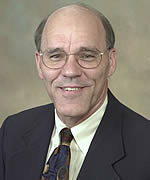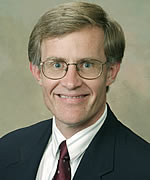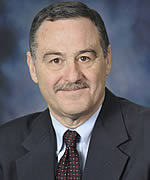Grant to help ECU blend behavioral, general health care
A federal grant of nearly $800,000 will help East Carolina University provide more coordinated care to patients with multiple health needs.
The five-year, $799,876 grant from the federal Health Resources and Services Administration will fund development of the proposed Center for Integrated Care Delivery. The center will focus on better coordination of health care along with the inclusion of behavioral and psychosocial aspects of chronic disease management.

Dr. Kenneth Steinweg
The project will train medical students and family medicine residents; psychology, family therapy and social work graduate students; and pharmacy and physician assistant students to work together as a team to meet patients’ needs for medical and behavioral care. Dr. Kenneth Steinweig, chair of family medicine at the Brody School of Medicine at ECU, is the principle investigator on the project.
Patients with chronic diseases such as obesity, heart disease and diabetes face critical behavioral choices daily in the management of their disease, and recent evidence suggests that up to 40 percent suffer from concurrent depression, anxiety and marital problems that limit their ability to care for themselves, said Dr. Doyle Cummings, a pharmacist and professor of family medicine at ECU and one of the project’s co-directors. These and other behavioral/psychosocial limitations lead to poor choices, inadequate disease outcomes, and, ultimately, in premature morbidity and mortality, he said.
The center will also further ECU’s goal of creating patient-centered medical homes. In that model, a patient’s personal physician leads a team that takes responsibility for the ongoing care of the patient. Care is coordinated and integrated across all elements of the health care system to assure that patients receive needed care when and where they need and want it.
Dr. Dennis Russo, a psychologist and clinical professor of family medicine, is the other co-director of the project.
The grant is the second HRSA grant awarded to the Department of Family Medicine this year. The federal agency also funded a five-year, $480,739 project to place family medicine residents in underserved communities in eastern North Carolina.

Dr. Doyle Cummings

Dr. Dennis Russo